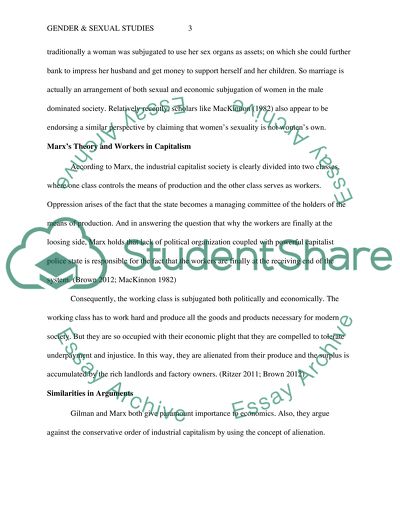Cite this document
(“Gilmans Theory and Women in Patriarchy vs. Marxs Theory and Workers in Essay”, n.d.)
Retrieved de https://studentshare.org/social-science/1482743-gilmans-theory-and-women-in-patriarchy-vs-marxs-theory-and-workers-in-capitalism
Retrieved de https://studentshare.org/social-science/1482743-gilmans-theory-and-women-in-patriarchy-vs-marxs-theory-and-workers-in-capitalism
(Gilmans Theory and Women in Patriarchy Vs. Marxs Theory and Workers in Essay)
https://studentshare.org/social-science/1482743-gilmans-theory-and-women-in-patriarchy-vs-marxs-theory-and-workers-in-capitalism.
https://studentshare.org/social-science/1482743-gilmans-theory-and-women-in-patriarchy-vs-marxs-theory-and-workers-in-capitalism.
“Gilmans Theory and Women in Patriarchy Vs. Marxs Theory and Workers in Essay”, n.d. https://studentshare.org/social-science/1482743-gilmans-theory-and-women-in-patriarchy-vs-marxs-theory-and-workers-in-capitalism.


